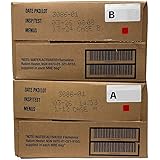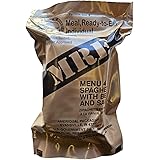Understanding Prepper Radios
What is a Prepper Radio?
When I first dove into prepping, one of the first things I realized was the importance of communication. A prepper radio is more than just a gadget; it’s a lifeline in emergencies. This radio allows you to receive important updates, contact fellow preppers, and stay connected with the outside world when traditional means fail.
These radios come in various forms—some are hand-crank, solar-powered, or battery-operated. Each type offers unique advantages that can be crucial during a crisis. With so many options, it’s essential to understand what you need from your radio to make an informed decision.
At its core, a prepper radio is designed for reliability and endurance. It should serve as your communication hub, whether you’re at home, camping, or in a survival situation. I can’t stress enough the significance of investing in a quality model that meets your specific needs.
Types of Prepper Radios
Let’s talk about the different types of prepper radios available on the market. You’ve got ham radios, two-way radios, and emergency NOAA weather radios, to name a few. Each has its intended purpose, making it crucial to consider what scenarios you might face.
Ham radios are perfect for long-range communication, but they do require a license to operate. If you aim to stay in touch with your prepper network over vast distances, this might be worth exploring. On the other hand, two-way radios are great for localized communication—perfect for a large group hiking or working on a project together. They’re typically simpler and don’t need special licensing.
That brings us to NOAA weather radios, which are an absolute must for anyone prepping. They inform you about severe weather alerts and emergency updates from the National Oceanic and Atmospheric Administration. I’ve found these radios to be invaluable during storm season; knowing when to hunker down can be a game changer.
Features to Look For
When choosing a prepper radio, I suggest looking for specific features that align with your communication needs. First off, durability is key. You want a radio that can withstand elements and rough handling, especially if you’re out in the wilderness or during a disaster situation.
Another feature I find crucial is battery life. Some radios allow you to recharge via solar power or a hand crank, which can be lifesaving if you’re off the grid for an extended period. Make sure to check how long the battery lasts and whether it can be replaced.
== > What if ... Get a FREE Subscription to PREPARE
Lastly, consider the types of frequencies the radio can access. Models that cover a range of bands (AM/FM, NOAA, etc.) provide flexibility in communication options. It’s better to have more access than not enough, especially when you’re relying on this device for critical information.
Choosing the Right Radio for Your Needs
Assessing Your Situation
Before committing to a specific radio, it’s helpful to assess your needs and environment. Are you prepping for urban emergencies, rural survival, or perhaps both? Each situation demands different capabilities from your radio.
For example, if you’re primarily in a city, a two-way radio that works well within a limited range would suffice. However, if you’re heading out into remote areas, then a ham radio might be your best bet. I’ve learned to tailor my choices based on where I live and the potential disasters we could face.
Keep in mind the size of your prepper group, too. If you’re planning on communicating with a larger team, opting for models that offer multiple-user capabilities might save you headaches later on. Trust me, having a radio that allows group communication can ease tensions during stressful situations.
Budget Considerations
Budget is always a factor, right? There’s a wide range of prepper radios on the market, and while you don’t want to skimp on quality, it’s also possible to find reliable options without breaking the bank. Setting a budget ahead of time can help narrow down your choices.
It’s easy to get carried away with features and end up with a fancy, costly model you might not even use to its full potential. I’ve made that mistake more than once! Instead, focus on what you truly need and ensure you’re investing in a solid radio that fits within that budget.
Also, don’t overlook the possibility of purchasing used or refurbished radios. Many sellers offer models in excellent condition for a fraction of the original price. Plus, it’s environmentally friendly—win-win!
Testing and Training
Once you’ve picked the right prepper radio, testing it out is crucial. Familiarize yourself with its functions to avoid fumbling with it during an emergency. I like to set aside some time every few months to ensure everything’s working and to practice using the different features.
Additionally, training your group on effective communication can be a game-changer. It’s about more than just picking the right device; it’s ensuring everyone knows how to use it properly. I recommend conducting regular drills to build confidence and ensure everyone’s on the same page.
Get Preparedness and Self-Reliance Tips. Subscribe Now!
Regular maintenance of the radio is also essential. Check batteries, and replace them when needed. Stay updated with any firmware or software updates. These small steps can ensure maximum reliability when you need it the most!
Emergency Preparedness Tips
Creating a Communication Plan
A solid communication plan is the backbone of effective prepper operations. Having a plan means you won’t be scrambling for information when a crisis hits. Plan how you’ll communicate with your group, who speaks to whom, and what signals or frequencies you’ll follow. It’s all about clarity!
I often suggest having a backup plan as well: what if one type of communication fails? That’s why a versatile radio setup works best. Whether it’s a ham radio or a two-way system, knowing your options can ease panic during an emergency. Always have a Plan B!
Don’t forget to write everything down and share it with your group. Having written documentation can help avoid misunderstandings, especially in high-stress situations. Everyone should know the plan inside and out.
Regular Check-Ins
In any prepping scenario, regular check-ins with your group can help ensure everyone is prepared and on track. Consider setting planned intervals for communication, whether weekly or bi-weekly, to discuss essentials and update one another on readiness levels.
These check-ins can double as practice sessions for your radio skills too. It’s a great way to stay sharp and ensure that everyone knows how to operate the equipment and relay critical information under pressure.
Feeling like a unified group will also boost morale and trust among you, which is equally as important in prepping. Establishing those bonds can help rice up your collective preparedness!
Staying Informed
Finally, staying informed about your local area and potential threats is vital. It can be beneficial to set up alerts on your radio for local channels or emergency updates. Being proactive about your information channels can save lives!
It’s like having a built-in radar for potential issues. I like to keep an ear out for weather and local events to be prepared and make informed decisions sooner rather than later.
Finally, don’t rely solely on this radio; augment it with social media, news apps, and community alerts to ensure you’re circling all the bases. Keep your prepper game strong by staying aware!
Conclusion
In conclusion, I’ve learned that having the right prepper radio is essential for effective communication in emergencies. Taking the time to understand your options, assessing your needs, and staying informed can make all the difference in a crisis. I truly hope these insights help you choose the best prepper radio for your situations!
FAQs
1. What should I look for when buying a prepper radio?
When buying a prepper radio, look for durability, battery life, and versatile frequency options. It’s essential that the radio can withstand tough conditions and has features that suit your specific prepping needs.
2. Do I need a license to operate a ham radio?
Yes, you do need a license to operate a ham radio. It requires passing an exam to ensure you understand the rules and technical aspects of using this communication tool effectively.
3. How often should I check my prepper radio?
It’s a good practice to check your prepper radio every few months. Test its functionality, batteries, and any updates to ensure it’s ready when you need it most.
4. Can I use a prepper radio for everyday communication?
Absolutely! Many prepper radios can be used for everyday communication, especially two-way radios. They’re great for staying in touch with friends and family during outings or events.
5. What’s the best way to practice with a prepper radio?
The best way to practice is to conduct regular drills with your prepper group. Set times to communicate using your radio, simulate emergencies, and familiarize yourself with the functionalities to build confidence.
Get Preparedness and Self-Reliance Tips. Subscribe Now!
Related Content
2026 Inspection U.S. Military Surplus MREs A and B Case – 2 Cases of 12 each Meals ready Eat | Genuine Military Rations with Flameless Heaters | Long Shelf-Life Emergency Food Supply
Now retrieving the price.
(as of January 28, 2026 01:34 GMT -05:00 - More infoProduct prices and availability are accurate as of the date/time indicated and are subject to change. Any price and availability information displayed on [relevant Amazon Site(s), as applicable] at the time of purchase will apply to the purchase of this product.)





